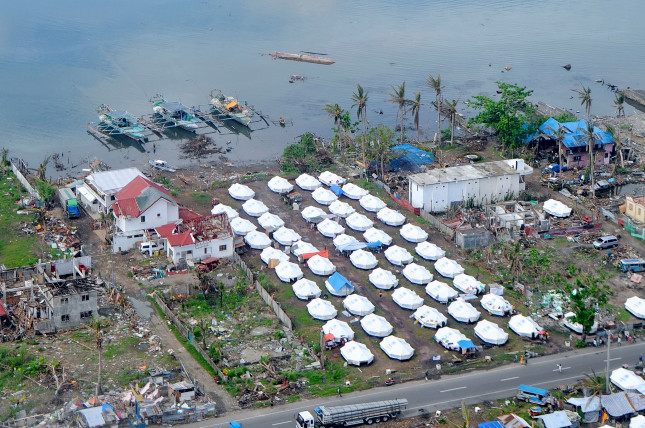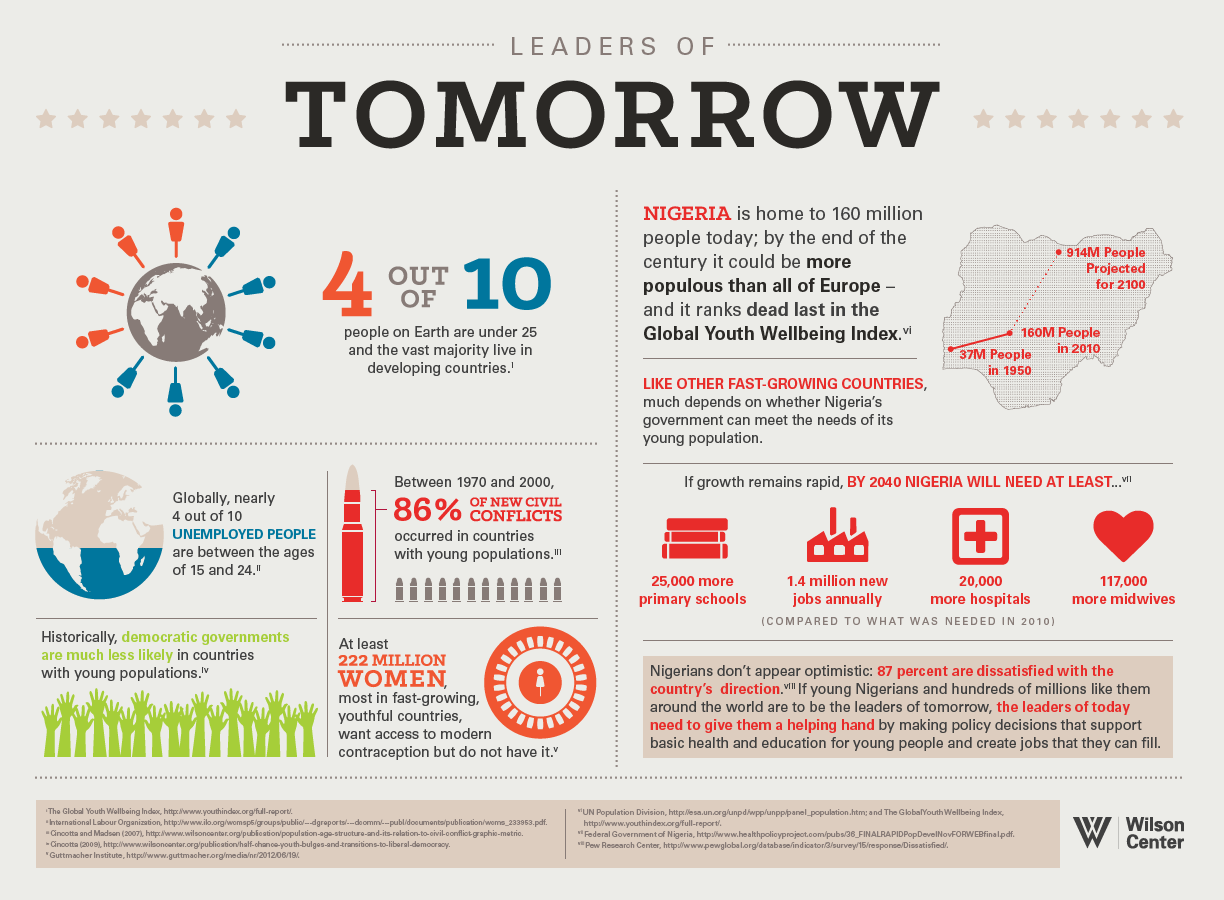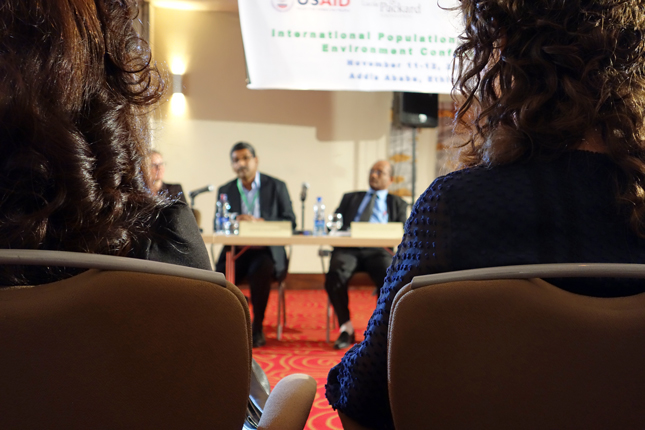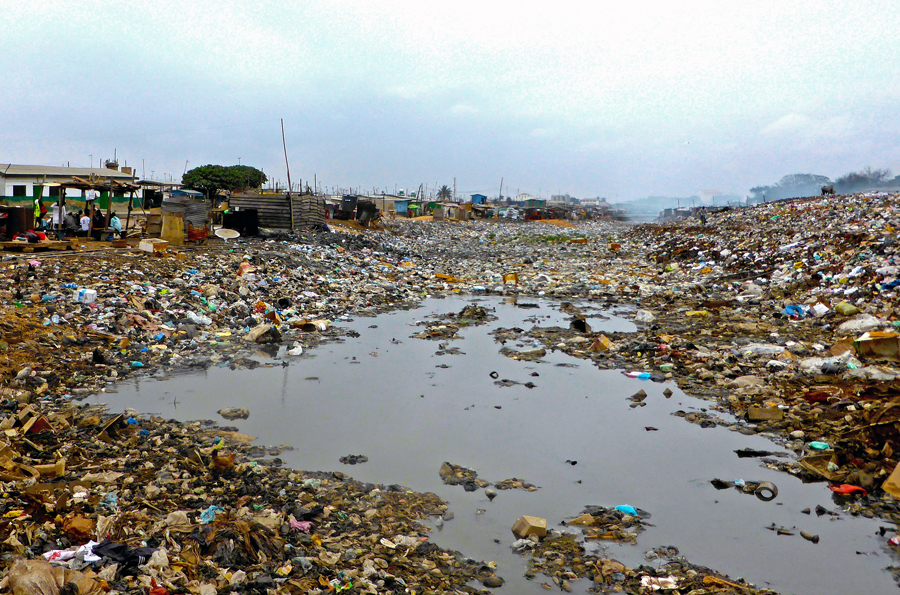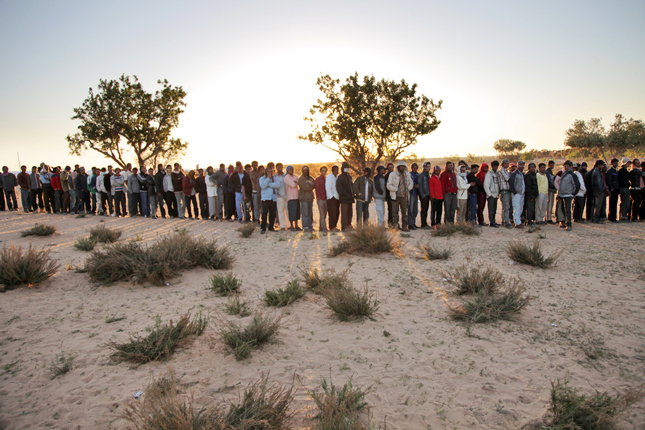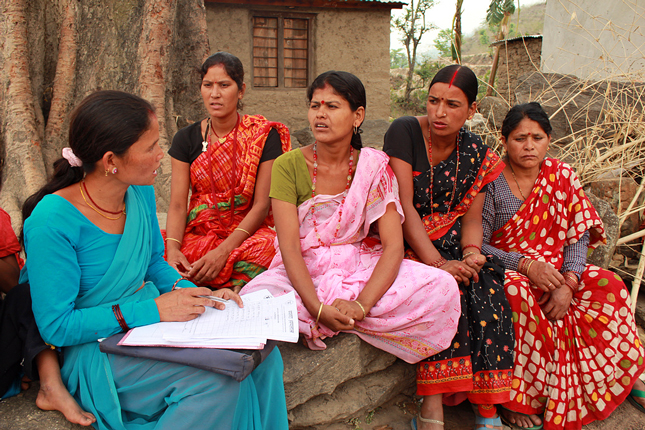-
A Closer Look at USAID’s Climate Strategy: Climate-Smart Development a Work in Progress
›July 14, 2014 // By Kathleen MogelgaardIn March, the Intergovernmental Panel on Climate Change released its latest comprehensive synthesis of climate change research. The report concludes that “impacts from recent climate-related extremes, such as heat waves, droughts, floods, cyclones, and wildfires, reveal significant vulnerability and exposure of some ecosystems and many human systems to current climate variability.”
-
Investing in the Leaders of Tomorrow: World Population Day 2014 Youth Infographic
›World Population Day began in 1987 after public imagination was sparked by the idea that there could be 5 billion people on Earth. Today, we’re well past 7 billion and according to the latest UN projections, headed north of 9 billion by mid-century.
-
Youth and Global Violence: Saving History’s Largest Generation of Young People
›July 9, 2014 // By Moses Jackson
As the largest-ever generation of young people enters adulthood, armed conflict is having a profound effect on their future. People under the age of 24 comprise nearly half the world’s population but are the primary participants in conflict today. Conflict is more prevalent in younger societies, and half of all forcibly displaced people are children.
-
From the PHE Conference in Addis Ababa, a Progress Report on Integrated Development
›
My grandmother was pleased when I told her I was heading to Ethiopia last November for an international conference focused on population, health, and the environment.
-
Richard Cincotta on Demography, Stability, and Democratization in Africa
›“You can look into the future a couple decades and get a very good idea about where countries are going,” said Richard Cincotta during a presentation at the National Defense University last summer – at least when it comes to demography.
-
Climate Change and Conflict in West African Cities: Early Warning Signs in Lagos and Accra
›Despite the threat posed by flooding and sea-level rise, relatively little attention has been paid to the potential for environmentally induced instability in coastal West African cities. However, current trends, including rapid population growth, land use patterns, and increasing climate impacts, suggest the costs of inaction in these urban areas are rising.
-
Why Do People Move? Research on Environmental Migration Coming of Age
›
When she finished her dissertation on migration as a response to climate change in 2003, it was one of only a handful of scholarly papers published on the topic that year, said Susana Adamo, an associate research scientist at Columbia University’s Center for International Earth Science Information Network. But in the decade since, interest in climate migration has exploded – in 2012, more than 10 times as many papers were published. [Video Below]
-
Can Social Accountability Help Ensure Rights and Better Participation in Maternal Health Services?
›
Over the last two decades, social accountability has emerged as a strategy to make health services more responsive to community needs. It’s an approach that creates a space for “interaction between citizen engagement and government responsiveness,” said Jonathan Fox, professor of international development at American University at the Wilson Center May 5. [Video Below]
Showing posts from category Africa.


